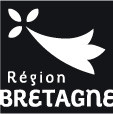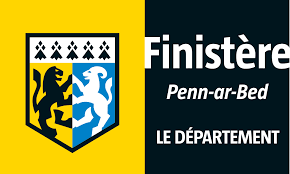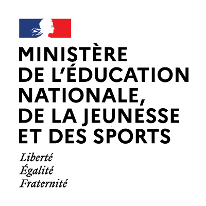Past Projects
SAD/APRE 2020 (COLABNBOOK)
Period : 2021-2023
The project is financed by the Brittany Region (Région Bretagne) via "Stratégie d’Attractivité Durable (SAD)" program, aimed at the integration of researchers (associate professors) newly arrived in Brittany. The project is co-financed by the Finistère Department Council (Conseil Départemental du Finistère) via the program "Aide au Programme de Recherche Émergent (APRE)". This project is led by IMT Atlantique, Lab-STICC/MOTEL in partnership with UBO/CREAD and Grenoble Alpes University (Université Grenoble Alpes). The project aims to improve an existing learning platform called LabNbook. Evolutions will concern the design of a new tool based on Learning Analytics to provide visual indicators through learning dashboards on the basis of learning data.


GTNUM 2020 (IA-EO)
Period : 2020-2022
This project is part of the Digital Thematic Working Groups (GTNum) 2020-2022, launched by the Ministry of Education (DNE). This project is led by the University of Nantes, and co-led by the Lab-STICC on the theme of the impact of Artificial Intelligence through Open Education (GTnum8). On the Lab-STICC side, financial support dedicated to the animation is provided by the Labex Cominlabs.
One of the thematic axes concerns multiple possibilities that AI can offer for Education, such as personalised learning, paths and resources recommendations, learning assessment, prediction of student dropout, development of learners’ transversal competences and self-determination or student orientation. The aim of the project is to contribute to the General State of Digital in Education (états généraux du numérique pour l’éducation) by providing research guidelines and to encourage their appropriation by teachers and other professionals within secondary education. The results of the project will be promoted via Éduscol platform and les Carnets Hypothèses “Éducation, Numérique et Recherche".
AT41: From appropriation of digital tools to transformation of practices
Numéri'LAB project, DNE éducation nationale (2018-2021)
The AT41 project had a triple objective: (i) to equip teachers by providing them with objective data on the practices of their students (in real time and off-line); (ii) to accompany pedagogical teams in the use of these data; (iii) to study how the collected data contribute to the transformation of pedagogical practices. Our contribution aimed at developing a participatory design process to support teachers in the construction of learning dashboards.
Related page: https://padlad.github.io/
CARNOT TSN Project: eXplainable AnalytIcs for EDUcation - XAI-EDU
The eXplainable AnalytIcs for EDUcation (XAI-EDU) project aims at using Artificial Intelligence (AI) techniques to produce Learning Analytics (LA) that will support learners and teachers in modifying their practices, based in particular on a dimension that is currently little used: the influence of social interactions. To address this issue, we propose a mixed numerical (LA) / symbolic approach - knowledge engineering - to make decision-making tools explainable and actionable. This type of approach is not currently addressed in XAI research. This project therefore aims to create a more sustainable collaboration between two LAB-STICC teams (DECIDE and IHSEV) and to create an ecosystem bringing together different school stakeholders (teachers, researchers, DISI, DFVS, etc.).
Partners : IHSEV and DECIDE Teams, LabSTICC Lab
CominLabs Project: SEDELA, SElf Data for Enhancing lifelong Learning Autonomy
We all know that a person will have many different jobs during his/her life. Lifelong Learning is becoming a central asset, beginning during initial training at university, but currently there is a lack of appropriate tools and methods combining self-reflective learning support and social interactions. Learner empowerment relates to the ability for a person to be able to define his/her own learning path and act on his/her environment, including peer learning. It is a prerequisite for autonomy, to become a full citizen.
Self-regulated learning methods, learner models and trust are key issues to support lifelong learning. The mastering of self-regulated learning methods is enhanced by digital tools, as the willingness to develop digital literacy prove it. Learner models designed to develop such instrumentation lack a real collaboration between learning process support needs and new opportunities provided by data availability. Current support thanks to reflexive instrumentation is still very basic, related to short term or specific data. Trust in tools is becoming a central concern in digital society, especially when personal data are handled, as it is the case in learning. When trust is ensured, new innovative services may be designed that empower people and change their usage.
Self-regulated learning process, learner models, and trust are hence tightly coupled. A holistic approach is needed to propose more effective self-regulated learning process, taking advantage of relevant services based on more expressive learner models, whose acceptability is enhanced by trust in collaboration. Consequently, the main goal of the multidisciplinary project Sedela, is to design, develop, experiment and evaluate an improved model of Self-Regulated Learning Process, supported by Semantic Open Learner Models, Trusted collaborative services and an experimental infrastructure, in a lifelong learning and trusted perspective.
Partners: LabSTICC Lab, IHSEV Team Brest, CREAD LAB Team Rennes, LS2N Lab, GDD TEAM, Nantes
Website: https://project.inria.fr/sedela/
ANR Project HUBBLE: HUman oBservatory Based on anaLysis of e-LEarning traces.
The HUBBLE project proposes the creation of an observatory for the construction and sharing of analysis processes of traces of massive on-line courses. Our observatory will give the actors of such courses (e.g. teachers, researchers, designers, students, administrators and policy makers) the possibility to analyze and explain the teaching and learning phenomena occurring within e-learning environments. The analysis processes we build will therefore accompany actors’ decision making, but will also guide researchers and other actors in the elaboration of analytical constructs, models and indicators. The HUBBLE project will be based on a platform that allows for the construction, sharing and management of analysis processes concerning the traces that are available in the observatory. In such a context, we consider it crucial to address the ethical concerns of stocking and analyzing traces.
Partners: Team MeTAH, LIG (Grenoble), Le LINA (Nantes), Team SILEX, LIRIS (Lyon),Team EIAH, LIUM (Laval), OpenClassrooms (Paris), L’Institut français de l’Éducation (IFé, ENS de Lyon), Le laboratoire STEF (Paris)
Website: http://hubblelearn.imag.fr/?lang=fr
Keywords: learning analytics, semantic web, technology-enhanced learning systems
ITEA 2 Project MOOCTAB: Massive Open Online Course TABlet
MOOCTAB aims at creating a tablet based platform dedicated to the lifelong learning (primary, secondary, higher, and continuous) using an on-demand MOOC platform. The MOOCTAB project intends to answer these challenges by developing a cloud based European MOOC on Demand platform with a Plug&Play approach deployable in Europe and developing countries. This platform will take advantage of existing technology bricks and existing open source platforms like edX. Enhancement of this platform will be detailed in the SoTA and innovation paragraphs.
At the other end of the chain, tablet devices are the perfect catalyser for e-education and to consume MOOC content. The tablets are taking over the market share from workstation computers due to their competitive pricing and rich multimedia features. Tablet computers provide a unique opportunity to create a truly portable learning experience. Lightweight with a long battery life, they offer possibilities not previously seen with other mobile devices. This lends itself to better use of technology within teaching. Using tablets in scenarios, such as field trips, workshops or physical education lessons offers opportunities for research, evidence gathering and presentation. All of this has brought new pedagogic perspectives to the teachers, but there are still challenges to overcome. Supporting teachers with training is essential in order to realise the potential of this technology in the classroom.
Partners: Telecom Saint Etienne, Gemalto SA, IMMANENS, Mantano SAS, NXP SemiConductors, Viaccess-Orca, Bahcesehir University, KOBIL, TUBITAK, Ubit, Vestel Elektronik.
Website: https://itea3.org/project/mooc-tab.html
ANR Network Project ORPHEE
The Orphée Network aims at structuring Technology-Enhanced Learning (TEL) stakeholders communities (industry with special focus on SMEs, providers, designers, educational institutions and professional associations, decision makers, research laboratories, etc.) in order to leverage the synergy of partners to successfully take up TEL challenges, with effective and sustainable results. The focus of the project is on three main issues: International, Business and Training & Experimentations. A road map will be adopted to sustain the network beyond the two years of the ANR project.
From a training perspective, the objectives are to create a TEL doctoral school at a national level, to provide content for online courses with theoretical, technical and practical content (e.g. MOOCs), to promote learning from experience, knowledge sharing, and collaborative knowledge building. Orphee tools will include a portal, support to collaborative projects, etc. The Orphée Network will develop partnership with the TEL industry and providers with the objective to enhance knowledge transfert, to discuss key TEL issues, and to respond to call for projects. At an international level, the main goals is to develop the connections between the French and the international research communities. For this purpose, the Orphée Network will support the creation of strong consortia committed to play an active role, to promote the technical and scientific competences of the French TEL research community, and to be part of international TEL studies and research projects.
Website: http://atief.fr/content/bienvenue-sur-le-r%C3%A9seau-orphee-de-la-e-education
OSEO Project: SMART-SENSING
Video: https://www.youtube.com/watch?v=oJq_Vvxqa94
The Smartsensing project addresses the e-textile or smart fabric market. These are textiles that meet high technical and qualitative requirements (mechanical, electronic, thermal, durability) to adapt to a technical function and its environment.
Keywords: Smart sensor networks, ontologies, semantic web, smart sensors, sport,
Modales Project (regional project)
The MODALES project (Modeling Didactic-based Active Learning Environment in Sciences) is aimed at designing an adaptive learning system for probationary teachers, based on a didactical theory and teacher real practices – funded by the Bretagne region. The adaptive and context-aware learning System is based on a semantic and didactic-based model of scenarios. (2005-2008)
Partners: IUFM de Bretagne: S. Laubé, Y. Kuster
ANR P-Learnet Project
The main goal of the p-LearNet ANR Project (Pervasive Learning Network) is to explore the potential of Pervasive Communications, for a large and important field of application: human learning at workplace, whatever the place, the time, the organizational and technological contexts, of the individual or collective learning process (2007-2010)
Partners: LIFL Lille University, Auchan, La poste, French Virtual Medical University, INT- GET
The european CANDLE Project
The Candle Project (Cooperative And Network Distributed Learning Environment, a European Project IST- 1999-11276) and the Atlas-Tutor project involving
De Montfort University, Leicester, Neurology Institute of London, University of Sussex and University of Birmingham.


